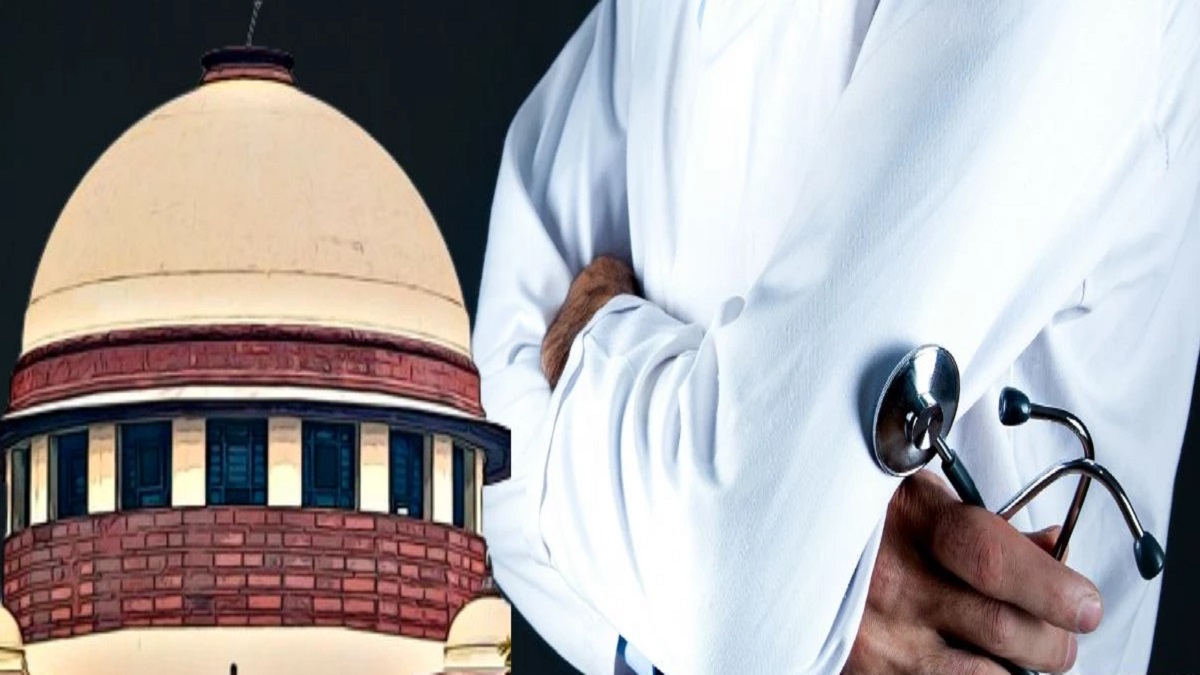NEET UG 2024 Paper Leak Case Closed: Centre Informs SC of Planned Exam Reforms
The Supreme Court bench, comprising Justices P.S. Narasimha and Joymalya Bagchi, observed that no further directions on reformation were required and accordingly ordered the disposal of the plea.
The Supreme Court of India closed the hearing process on the case concerning the National Eligibility cum Entrance Examination for undergraduate (NEET-UG) conducted by National Testing Agency (NTA) following the centre undertook to implement measures proposed by an expert group for the NEET UG 2025 exam. The Supreme Court bench, which included Justices P.S. Narasimha and Joymalya Bagchi, determined that no additional reformation directives were required and thus dismissed the petition, as reported by EdexLive.
The government will implement the recommendations of a seven-member expert group but will not hold the NEET exam online due to limited internet connectivity and computer availability in the country.
Meanwhile, the court found other NTA failures, including a breach of security at Hazaribagh's exam centre, where unauthorized people got question papers. Other difficulties included the delivery of question papers by e-rickshaws and the distribution of erroneous question paper sets to applicants.
"Over 26 lakh students take NEET across India, and the government must ensure the availability of computers and the internet. This will take some time," Mehta stated.
The Supreme Court's decision to close the case was based on the panel's conclusions and the government's commitments to take corrective action. "Nothing survived in the case, and it can be disposed of," Mehta stated, implying that the proposed improvements will effectively solve the identified concerns.
The panel's suggestions also addressed broader issues of exam administration, such as security, data protection, technical improvements, policy engagement, global collaboration, and mental health care for students.
Read more:
As per the NEET exam pattern, the Biology section has the highest number of questions. Out of the total 360 questions, 90 questions come from the Biology section. The Biology section is segregated into two subjects, Botany and Zoology, each consisting of 45 questions, making the total number of questions to be 90. Physics and Chemistry sections have 45 questions each. Hence, Biology as a subject carries the highest weightage in the NEET question paper.
The NEET analysis is prepared based on the student reactions and reviews by experts. While the student reactions may vary from one to another as each student has a different perspective, the expert review is a more credible source of NEET analysis.
The difficulty level of NEET may vary for candidates, based on their preparation level. Based on the expertise and experience, the NEET analysis by experts will provide a more in-depth overview of the exam for each subject, topics, syllabus coverage and weightage. Expert analysis for NEET will also act as a basis of preparation for aspirants planning to appear for the exam next year.
However, student reactions give a first-hand impression of the exam which cannot be ruled out. It gives a glance to the NEET question paper and the personal feedback of candidates. NEET analysis by student reactions help evaluate the overall performance of candidates and the expected cutoff.
Follow Shiksha.com for latest education news in detail on Exam Results, Dates, Admit Cards, & Schedules, Colleges & Universities news related to Admissions & Courses, Board exams, Scholarships, Careers, Education Events, New education policies & Regulations.
To get in touch with Shiksha news team, please write to us at news@shiksha.com

Latest News
Next Story

NEET or National Eligibility cum Entrance Test is a paper-and-pencil-based test (PBT) of three hours or 180 minutes duration. There will be a total of 180 multiple-choice questions (MCQs), all of which will be compulsory to attempt. The syllabus of the exam consists of Physics, Chemistry and Biology subjects. The Biology subject is segregated between Zoology and Botany. On the other hand, the Chemistry subject is segregated into Organic, Inorganic and Physical Chemistry. Unlike last year, the subjects will not be divided into two sections.
According to the marking scheme, each correct question carries 4 marks, and there is a negative marking of 1 mark for each wrong answer. No marks will be awarded or deducted for unattempted questions. The following table brings the structure of the NEET exam.